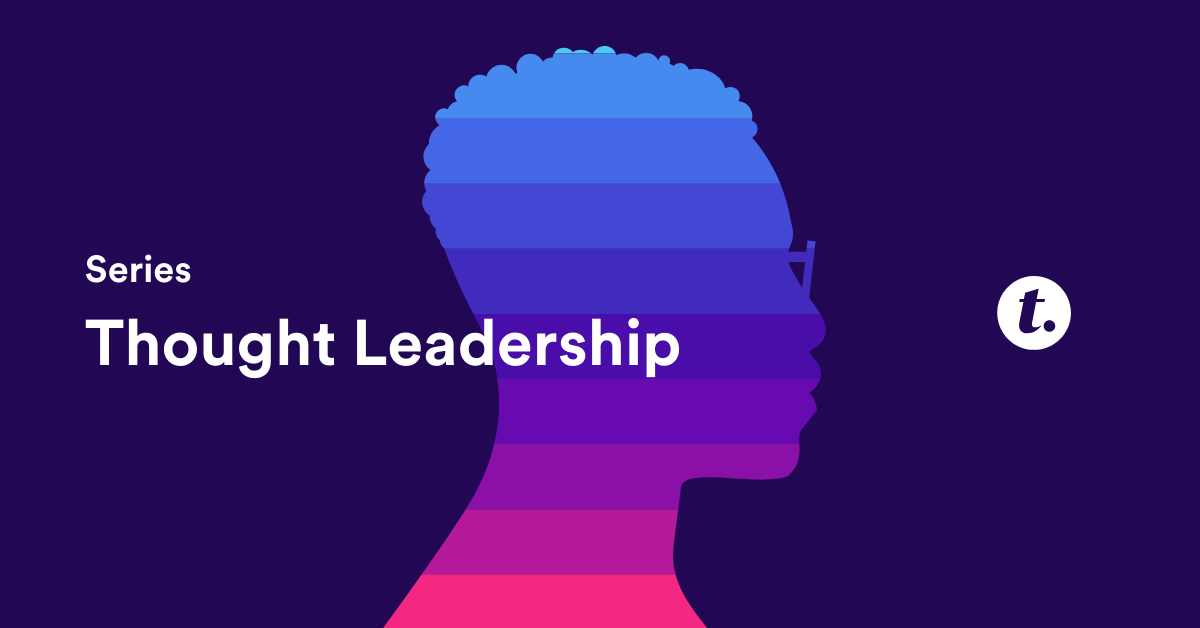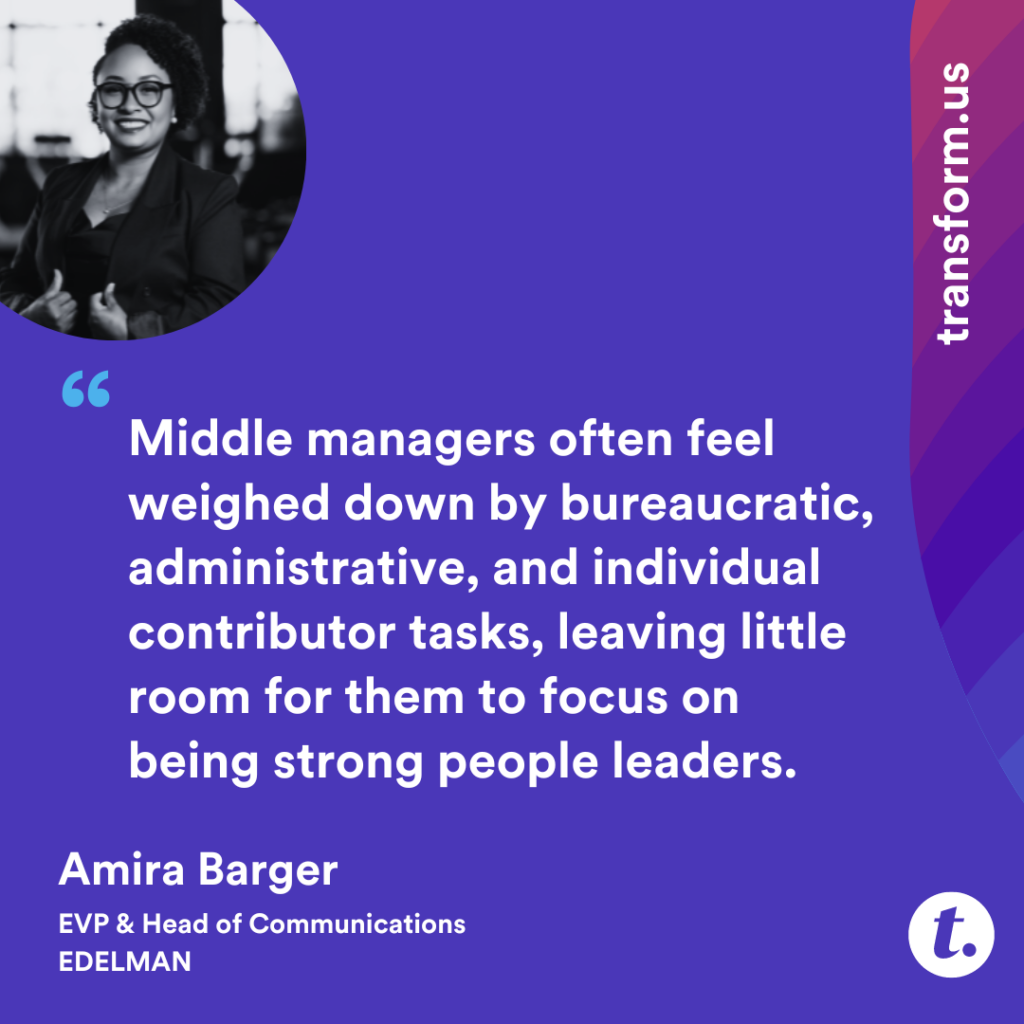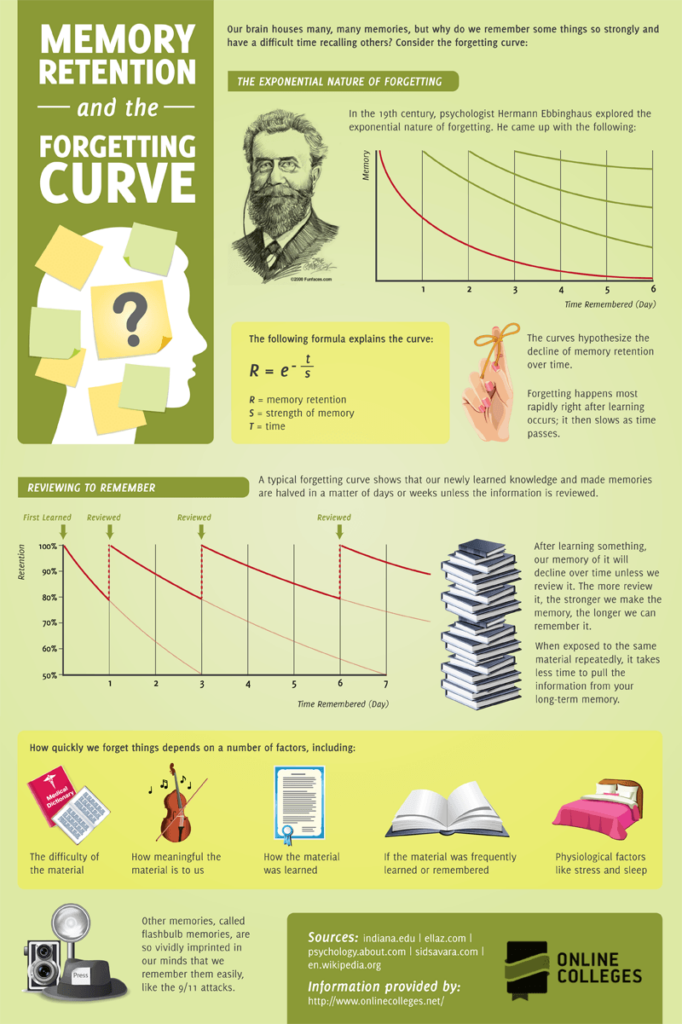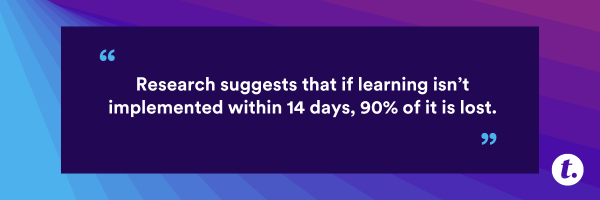
My first manager, who eventually became a close friend, was a pro at organizing post-work drinks and laughing off office drama, but when it came to managing people—let alone tackling the intricacies of DEI—they were completely out of their depth. Every day, middle managers shape employees’ day-to-day experiences and make crucial decisions on hiring, promotions, and more – they are the linchpin of organizational change. Over 90% of U.S. employees report to a middle manager, making the quality of their manager the most critical factor influencing their performance and job satisfaction. Yet, despite their vital role, many managers feel ill-equipped to navigate the complexities of Diversity, Equity, and Inclusion (DEI). This confidence and information gap among managers is a significant barrier to translating DEI intentions into meaningful actions.

To understand the root of this gap, we must examine the effectiveness of current DEI training efforts and the challenges upskilling managers in this area present.
The Training Paradox: Hours Spent, But What Is Retained?
Many leaders would purport that closing skills gaps is today’s top business priority — not only because artificial intelligence is constantly evolving but also because the rapidly changing workplace demands a workforce that can adapt, innovate, and stay competitive in an increasingly complex environment.
Have you attended a DEI training in the past four years? If so, estimate the number of hours you’ve dedicated to DEI training alone. Then, consider how much of that training you’ve actively applied in your daily work. Research suggests that if learning isn’t implemented within 14 days, 90% of it is lost. Even more startling, 75% of leadership content is forgotten if not applied within six days after training. These patterns and percentages are undoubtedly concerning, yet they are not uncommon. This has long been known as the forgetting curve, a psychological phenomenon introduced by 19th-century psychologist Hermann Ebbinghaus.

This phenomenon highlights a crucial issue: while DEI training is abundant, the retention and application of this knowledge are alarmingly low. On average, managers report receiving just two hours of training annually, a vastly insufficient amount of time to adequately understand the complexity and importance of DEI topics. Especially if you consider that it is haphazardly included in that training time alongside other pertinent topics managers must bear in mind. It’s no wonder that 69% of Chief Diversity Officers (CDOs) report that equipping managers with DEI skills keeps them up at night, according to a 2023 State of the CDO report by Management Leadership for Tomorrow.
The same report highlights a glaring confidence and information gap among middle managers. Only 24% of these managers feel knowledgeable about their role in DEI, compared to 43% of board members, 64% of CEOs, and 52% of executives. This disparity indicates that while senior leaders might be increasingly informed about DEI, those on the front lines of implementation—middle managers—are often left in the dark. This presents a concerning challenge. Advancing DEI is a long-lead change management project that requires sustained commitment, strategic planning, and continuous reinforcement. It involves a shift in policies or practices and a fundamental transformation of organizational culture and behaviors. This journey demands patience. Meaningful DEI progress unfolds gradually over time, with each step building on the last to create sustained, systemic change.
To support middle managers in this long-term endeavor, organizations must adopt a robust and comprehensive approach that addresses the knowledge gap and the need for ongoing reinforcement.

The Four Pillars of Change: A Blueprint for DEI Success
To bridge this gap experienced by middle managers, organizations will have to go beyond traditional training models and embrace a more holistic approach to change management. McKinsey’s “The Psychology of Change Management” suggests that four basic conditions are necessary for employees to change their behavior:
1. A Compelling Story: Employee understanding of the purpose behind DEI initiatives and agreement with the need for change is critical. Managers must be equipped with positive talking points that explain the rationale and motivate employees to overcome common pushback.
2. Role Modeling: Desired behaviors should be endorsed and mirrored by CEOs and colleagues whom employees admire. Managers need clarity on what’s expected of them, practical tips for application, and ongoing reinforcement through coaching and other interventions.
3. Reinforcing Mechanisms: Systems, processes, and incentives must align with the new behaviors. This means making a clear case for DEI and ensuring that the imperative for change is integrated into the organization’s overall strategy.
4. Capability Building: Employees need the skills and dedicated time to practice these skills. This goes beyond training, which is why I prefer capability building as the language we use here; it involves meeting managers where they are and providing them with the tools and support they need to succeed.
However, even with the right tools, middle managers often face additional challenges that can hinder their ability to lead effectively.
The Power of Middle Managers: Unleashing Their Potential
Middle managers are the backbone of any organization. They shape the experiences of most employees, influence key decisions, and directly impact the company’s bottom line. However, these managers often feel weighed down by bureaucratic, administrative, and individual contributor tasks, leaving little room for them to focus on being strong people leaders.
Many middle managers do not feel adequately supported by their organizations to excel in their roles. They struggle to see how DEI fits into existing priorities and are unsure where to begin. This uncertainty, coupled with a lack of confidence, can stymie progress and prevent DEI initiatives from gaining traction.
To counteract these challenges and unlock the full potential of middle managers, targeted interventions like coaching can play a pivotal role.

Coaching: A Critical Intervention for Middle Managers
One powerful solution to this challenge is coaching. Coaching has significantly enhanced various aspects of an employee’s performance, including proactivity, goal attainment, self-insight, motivation, and autonomy. Coaching can be particularly beneficial for middle managers, who are often the key source of future senior executive talent.
Research indicates that 80% of people who receive coaching report increased self-confidence, and over 70% benefit from improved work performance, relationships, and more effective communication skills. For Chief Human Resources Officers (CHROs) and CDOs, partnering to build the capacity of middle managers through coaching is a strategic move. It requires leaning into your learning and development team and strategy to ensure that managers are trained and supported in applying what they’ve learned – daily.
Ultimately, the success of DEI initiatives hinges on closing the confidence and information gap among middle managers, and there’s no better time to start than now.
Closing the Gap for a More Inclusive Future
The gap in confidence and information among managers is a significant barrier to advancing DEI from intention to action. To overcome this, organizations must invest in a comprehensive approach that includes compelling storytelling, role modeling, reinforcing mechanisms, and capability building. By doing so, our organizations can empower middle managers to become champions of DEI, driving meaningful change that benefits the entire organization.
In a world where DEI is increasingly recognized as a business imperative, bridging the gap for managers is not just an opportunity—it’s a necessity. By equipping these leaders with the skills, confidence, and support they need, organizations can turn their DEI aspirations into tangible outcomes, creating a more inclusive and equitable workplace for all.

About The Author
Amira K.S. Barger, MBA, CVA, CFRE is the EVP and Head of DEI Communications at Edelman. She is a strategic communications & marketing counselor working at the nexus of health equity, DEI, and employee engagement to aid organizations in addressing society’s most pressing public issues. Hear Amira speak at Transform 2025!
Join us in engaging conversations and community as we transform the now and next of work, together at Transform 2025.
